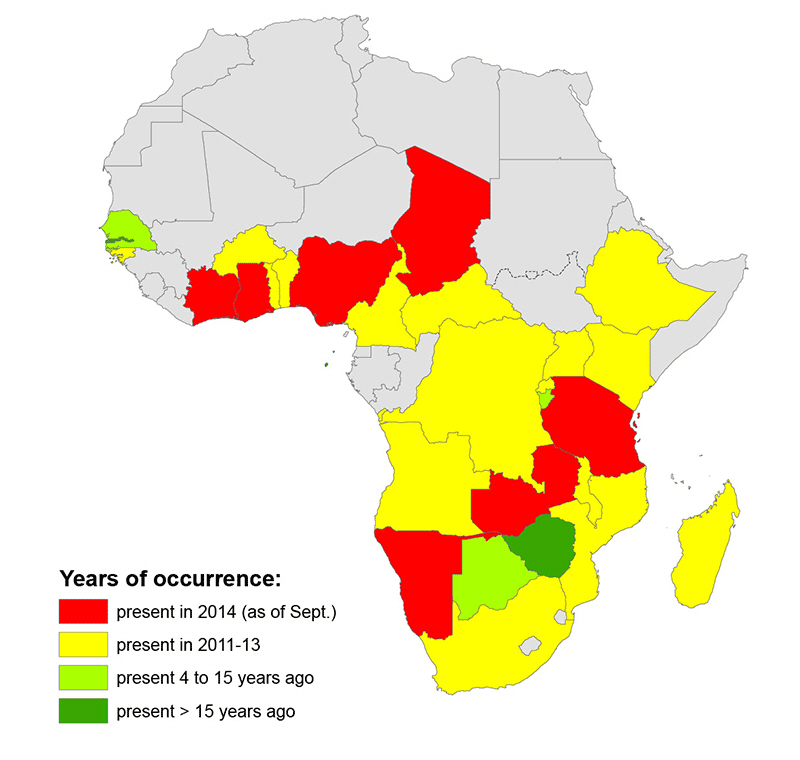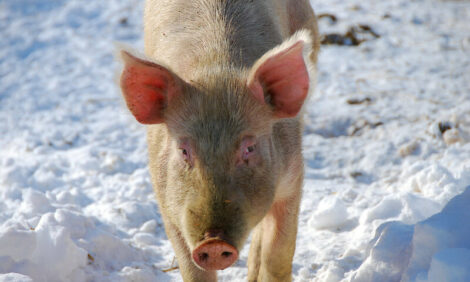



Regional Strategy to Control of African Swine Fever in Africa
AFRICA - The Food and Agriculture Organization of the United Nations (FAO) has joined with two African organisations to develop a regional strategy for the control of African swine fever (ASF) for the continent.Occurrence of African swine fever (ASF) was reported in almost half of the countries that make up the African continent in 2012. This transboundary animal disease (TAD) can have a powerful negative impact on a nation’s economy and social structures. It causes major economic losses from its effects on pig production and economically hinders people who depend on pig farming and who risk, as a result of ASF, to lose their livelihoods. It also reduces poor communities’ access to high-quality and cheap animal proteins. For these reasons, ASF is considered the most serious infectious disease in pigs in Africa.
In recent years, the international community, national authorities, the pig production sector and researchers are trying to solve the problem in a sustainable way in order to eliminate constraints on pig production and enhance rural development. The African Union’s Interafrican Bureau for Animal Resources (AU-IBAR), the FAO and the International Livestock Research Institute (ILRI) have been collaborating since March 2013 to implement a regional strategy to control ASF in infected countries and to prevent its spread to non-infected countries.
The strategy is based on collaboration and partnerships among farmers, traders, veterinary and animal production services, researchers, governments, civil society and development partners. With the growing pig trade throughout Africa, the regional strategy will promote viable pig production and improve the livelihoods of all actors in the pig and pork value chains, especially poor people. It is articulated around three founding principles.
The first principle is knowledge-based, meaning that the control of the disease should be based on the best available epidemiological knowledge and experience of ASF to reduce its prevalence and prevent its further spread. This aspect includes the following activities: the collection and analysis of existing information relevant to epidemiology and control, surveillance of the ASF situation in the region, increased capacity for field diagnosis through training and research in pig management, value chain analysis and molecular epidemiology studies, diagnosis and vaccine development.
The second principle regards an area-specific approach ensuring that country and sector-specific epidemiological scenarios and technical options for prevention and control are taken into account in order to have appropriate outbreak management for different systems and socio-economic situations.
The third principle is to use a holistic approach to promote a gradual transformation of the less biosecure, small-scale, scavenging (extensive) production system into a more biosecure, small-scale, semi-intensive production system. This requires the harmonization of policy and legislation as well as coordination and resource mobilisation in order to integrate traditional veterinary approaches with other components of animal production. Constraints in pig production are interrelated and need to be addressed via an integrated approach combining health, genetics, feeding, husbandry practices and organization at the producer level, as well as public and private partnerships to support the swine sector. In addition, the research community should provide sound evidence to inform prevention and control programmes about viable interventions.
Together, AU-IBAR, FAO and ILRI are currently articulating the action plan into short-, medium- and long-term streams of activities and identifying the stakeholders and institutions responsible for each activity. They are seeking to bring them together to collectively participate in finding solutions that address the main hindrances faced in pig production and marketing in order to create an enabling environment and ensure the sustainable development of the pig sector in Africa.

Original source: FAO report








